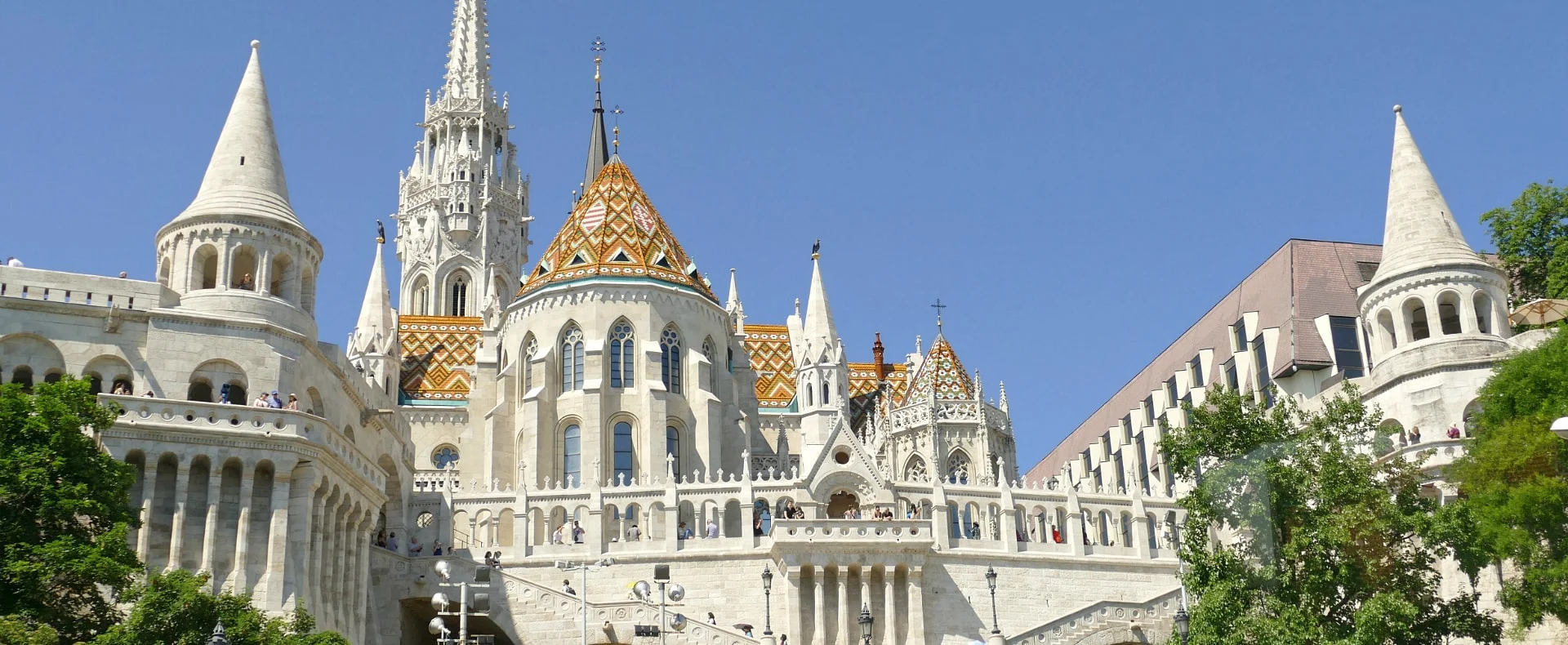
Fishermen’s Bastion
See some interesting facts about one of the most famous landmarks and get all the information about it.
O
C
Fishermen’s Bastion or as we call it, Halászbástya gives a beautiful frame to Matthias Church in the Castle District. Have you ever thought about its purpose? What does it look like? No, it’s not a fortification. Have you ever seen a fortification with stairs for the enemy to attack? Of course, you haven’t. So what it is? Let’s see!
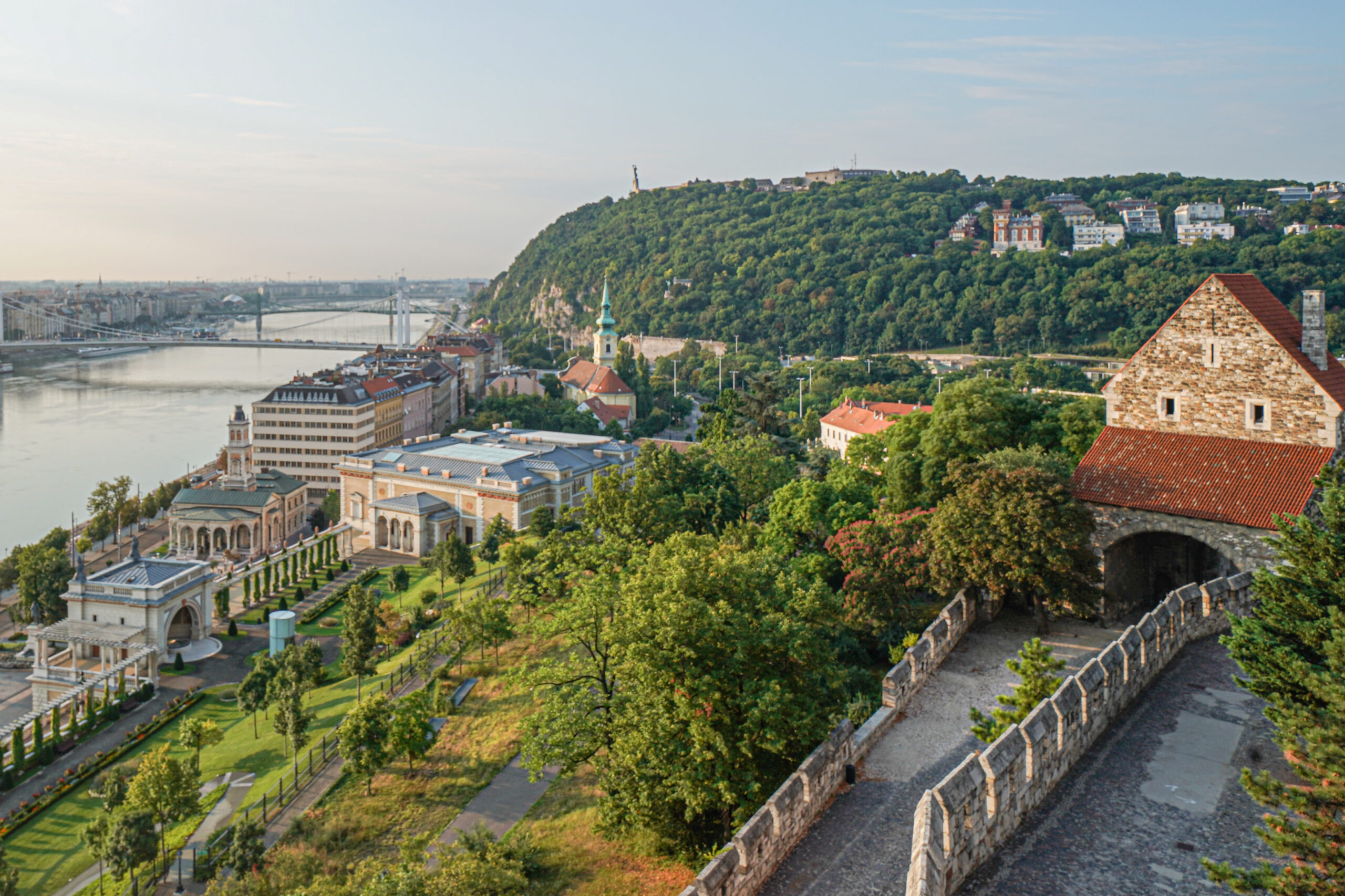
What can you find around?
It was built between 1895 and 1902, in Neo-Romanesque style, and it is surrounded by other significant buildings, statues, and monuments. You can find the iconic Matthias Church there with its unique Zsolnay tiles on its roof (you can see the same on some other buildings in Budapest, e.g. the Great Market Hall), a statue of Saint Stephen, and the 700 years old Gothic Saint Michael Chapel (there was a cemetery, and the chapel belonged to that before) which gives place to the Hungarian History 3D show nowadays in 8 languages and in every 15 minutes (Mon-Sun 10.00-17.00), and also the Halászbástya étterem (restaurant).
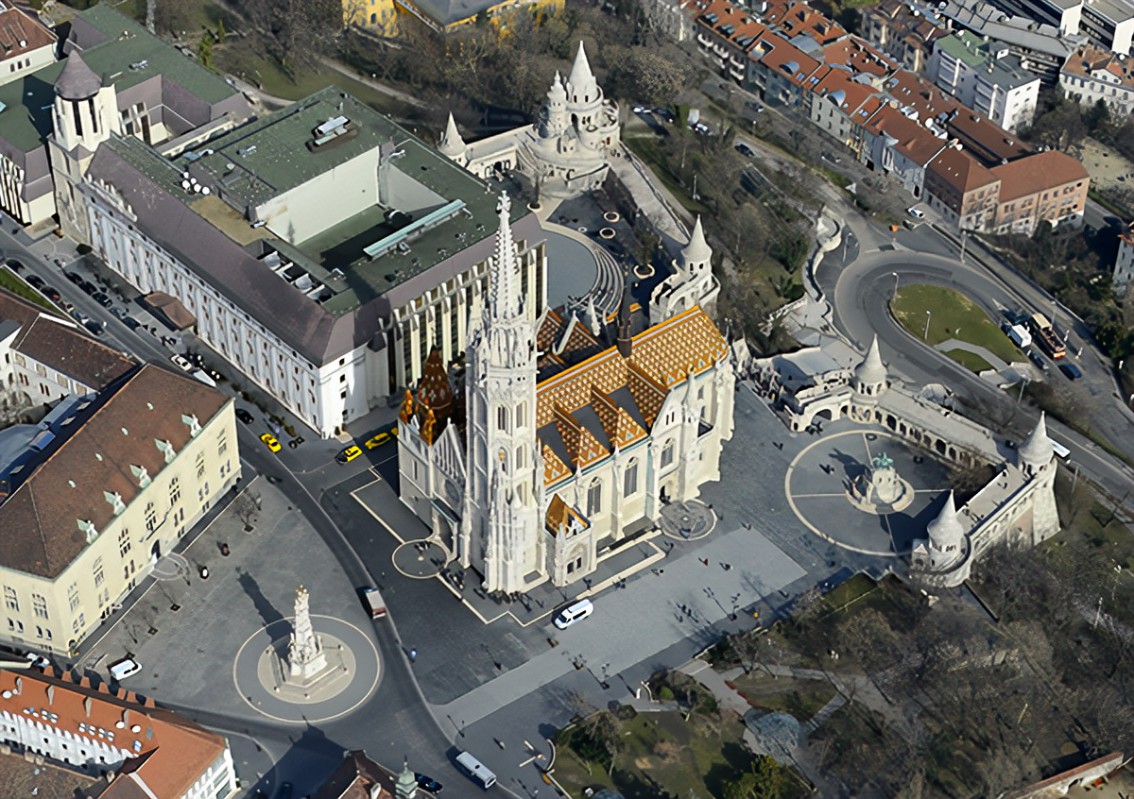
The location and the origin of the name ‘Fishermen’s
The location of today’s Szentháromság Square was always a central place in this area, although until the end of the 19th century, there was no square. There was a market in the Middle Ages on Tárnok Street weekly. The fish market was around the Church. They brought up the fresh fish at the place of the Bastion. The Fisher Town was a part of the Water Town in Buda, which was (obviously) settled by fishermen. And they also protected the castle walls these times. So this is where the name comes from.

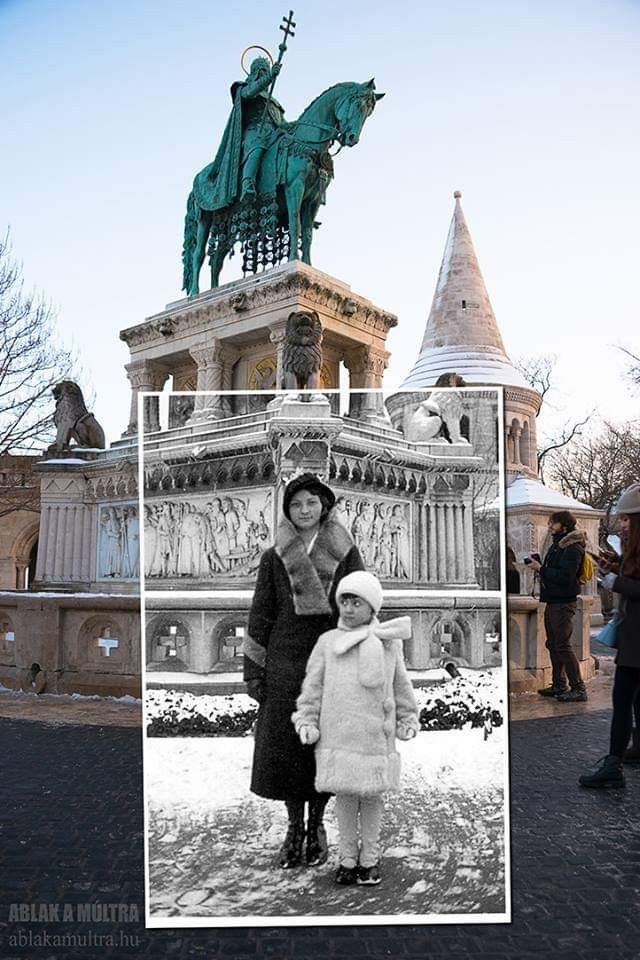
About the Bastion
The line of the Fishermen’s Bastion built exactly on top of the original castle walls. If you are walking up to the hill on the streets, you can find its stairs outside. You can climb up on them to enter the Castle district. The Bastion has seven towers. They symbolise the seven Hungarian tribes and some people say the shapes of the towers symbolise the tents of the leaders. The Northern Tower, or so-called Árpád Tower built in the place of the medieval Message Tower. You can also see statues of Álmos and Előd here. In the Southern Tower, you can find the Schulek stairs (named after its designer). The whole bastion is 140 metres long and it is embracing the Matthias Church. Both of them designed by Frigyes Schulek, who wanted to make a harmony in this unit. If someone is looking at it from the Danube bank, it looks like a fortification with its towers. But if someone is inside, and looks at it from the side of the Church it looks like a closed courtyard. It has a peaceful atmosphere and it gives a feeling of serenity like in the cloister courts. The Fishermen’s Bastion mixes the secular and sacral characters. It was almost totally destroyed during the world wars, so it had to undergo a huge renovation, as it was one of the most important landmarks of Budapest back then, too. The Fishermen’s Bastion as part of the Castle District has been a part of the World Heritage Sites since 1987.
Nowadays it serves as a lookout, and you can take breathtaking photos of the city under your feet, and it also gives home to the Halászbástya étterem, where you can sit back, relax and enjoy the panorama, while you try the Hungarian cuisine with a nice wine or champagne. The view is amazing from here!
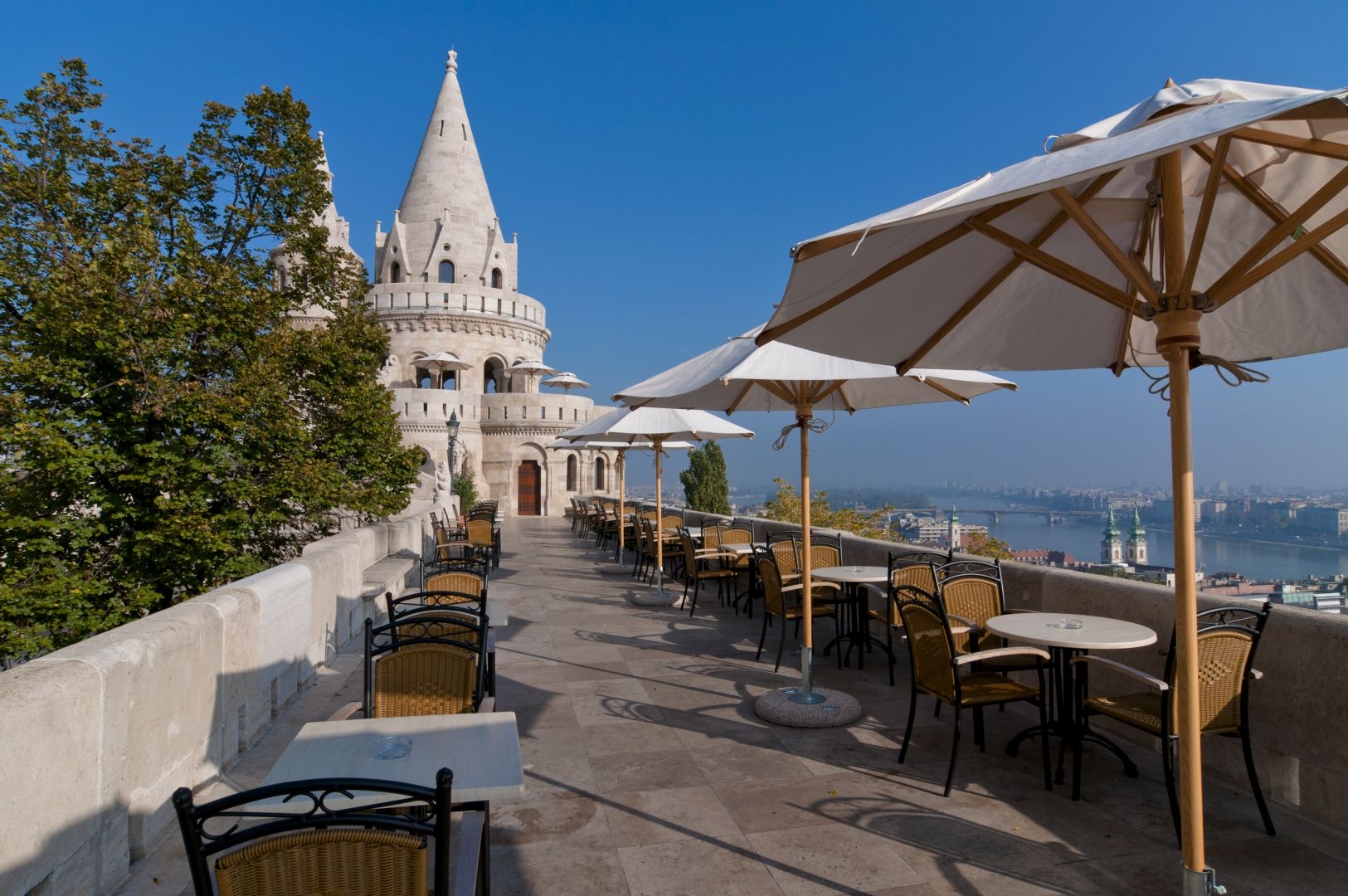
Statue of King Saint Stephen
The last piece of this unit is the Equestrian Statue of King Saint Stephen. Schulek made the decorated pedestal, and Alajos Stróbl was the sculptor. It depicts the founder of the state mounted on a richly decorated horse. He is raising the double cross in his hand, and he is wearing the Holy Crown on his head.
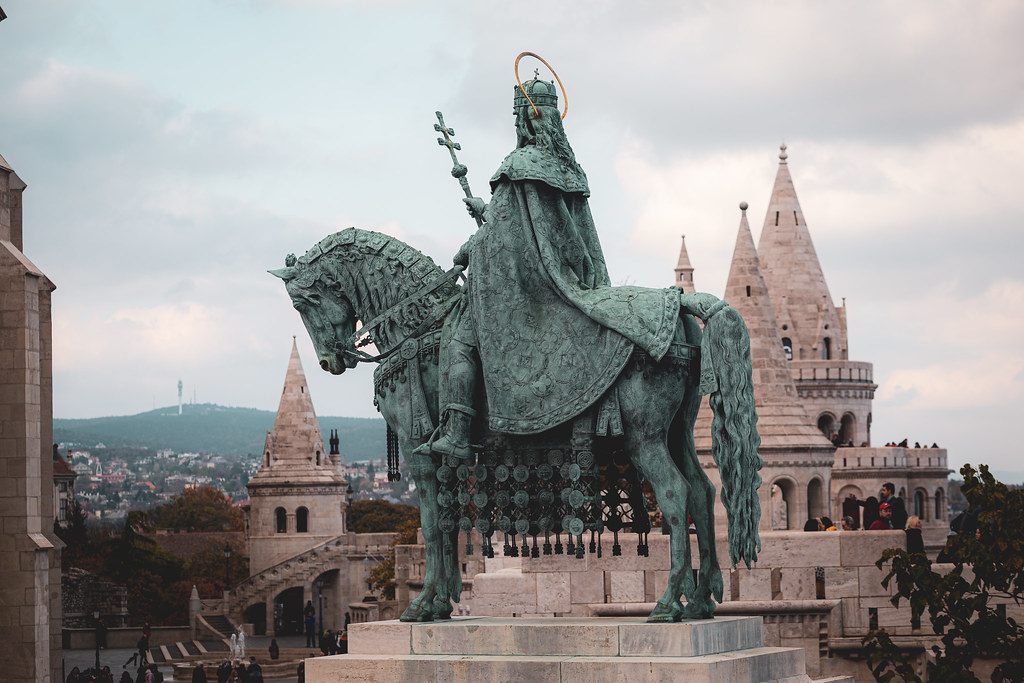
The reliefs are illustrating important scenes from the reign of Saint Stephen. (Coronation, legislation, the homage of Vienna and the construction of the church)
Interesting facts of the statue
- Lot of outstanding persons of that time can be found in the reliefs. E.g. you can see Schulek in the construction relief, as he is holding the model of the Church in his hands, and in the background, you can see Alajos Stróbl, as well. You can also see novelist (Mór Jókai), composer (Ferenc Liszt or Franz Liszt), politicians and other famous people in them.
- This statue was inaugurated twice on the same day.
- On the day of the inauguration in the forenoon, there was a holy mass in the Matthias Church. After that, everybody went outside, and the veil fell. The prelate walked around and sanctified it. Then they covered the statue once again to reveal it the second time in the afternoon for the government and for the king. The official celebration began accompanying with the bells in the tower.
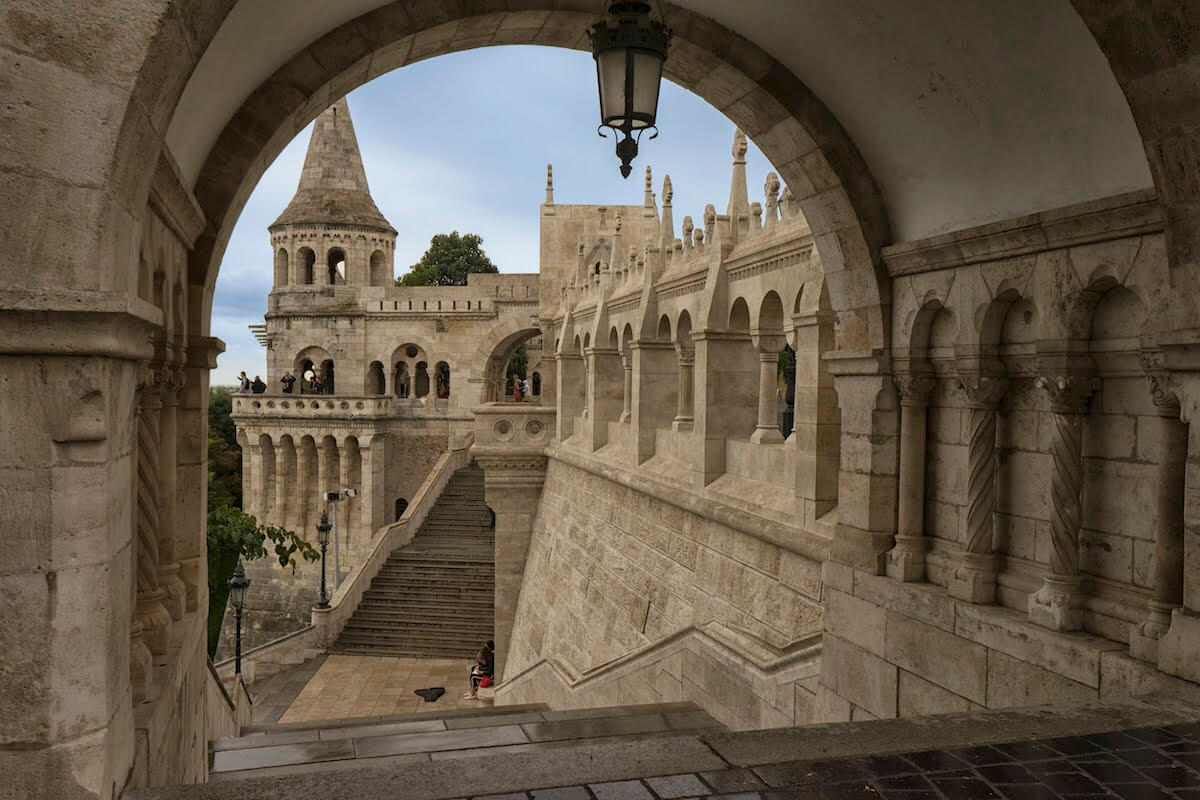
If you visit our beautiful city, you can be sure, that this place won’t be skipped, as it is one of the most important parts of Budapest. You can spend hours and hours walking around and exploring Fishermen’s Bastion and the Castle District. Taking photos, buying souvenirs, visiting restaurants, museums and exhibitions. I encourage you to inspect every single street and corner, as every part of it keeps a little history and some keep a little secret, too! Come and enjoy!
Related Articles
-

Find the best apartment for rent in Budapest
-

Your ultimate itinerary to exploring Budapest in 1, 2 or 3 days
-
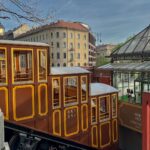
Budapest Castle Hill Funicular – all you need to know about the topic
-

The real taste of Ireland: 3+1 Irish bar Budapest with traditional Irish atmosphere and drink in the heart of Budapest you must visit
-
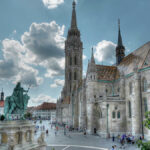
Matthias Church and the breathtaking Buda Castle
-
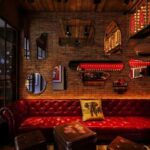
The 5 coolest boutique hotels in Budapest
If you are looking for the most atmospheric Irish bar in Budapest, this list is just for you!




Your experience is important.
Anything you have not found?
Ask a Question
Please log in to write a review.
There is no review yet.